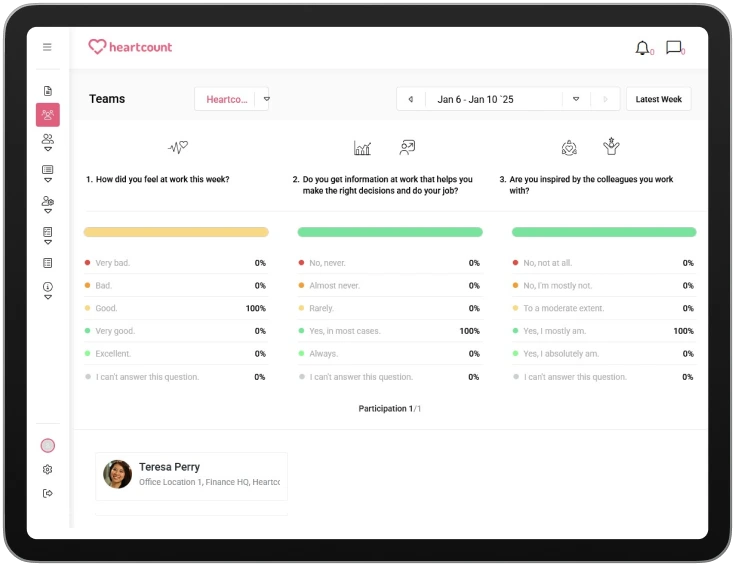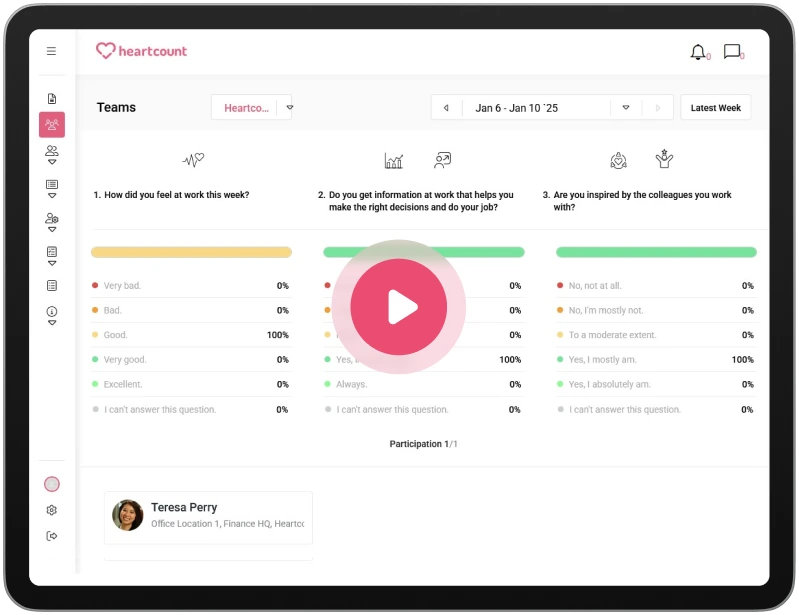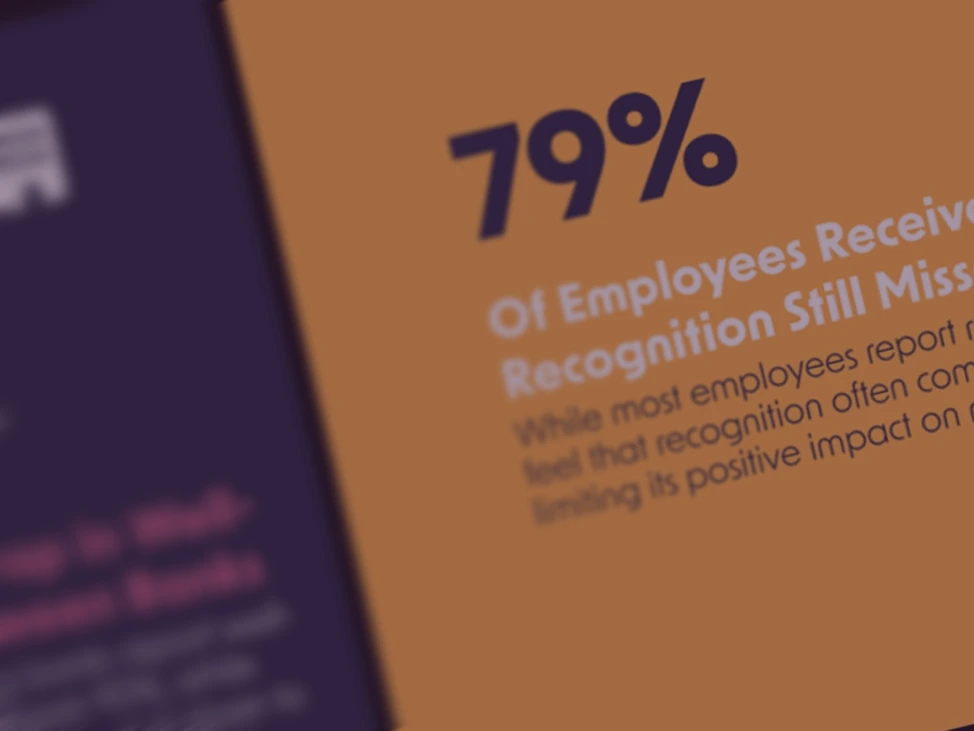Profits or People… What Should Leaders Focus on First?

Should a manager mostly be the one who sets KPIs and drives employees towards their goals? Or should the manager primarily be the one who understands and likes their employees and builds good relationships with them?
The answer is, of course, that good leaders need to be able to do both.
Should a manager mostly be the one who sets KPIs and drives employees towards their goals? Or should the manager primarily be the one who understands and likes their employees and builds good relationships with them?
The answer is, of course, that good leaders need to be able to do both.
Our Brains Mess It Up
But focusing on both results and relationships is hard. Why? Because of our brains!
In his outstanding book called “Why Our Brains Are Wired to Connect”, Matthew Lieberman writes:
Even though thinking socially and analytically don’t feel radically different, evolution built our brain with different networks for handling these two ways of thinking.
In the frontal lobe, regions on the outer surface, closer to the skull, are responsible for analytical thinking. In contrast, regions in the middle of the brain, where the two hemispheres touch, support social thinking.
Here’s a really surprising thing about the brain: These two networks function like a neural seesaw. In countless neuroimaging studies, the more one of these networks got active, the more the other one got quieter. In general, engaging in one of these kinds of thinking makes it harder to engage in the other kind.
So doing both at the same time is tricky.
It’s All About Results and Relationships
According to our model, happiness at work is created by two factors: results and relationships.
Simply put, employees love their jobs when they make a difference at work, and when they feel cared for as human beings. These two factors—far more than gyms, massages and other perks—determine whether employees are happy, motivated and productive. That is why it is essential to have managers who are able to help employees experience both.
Sadly, results often take center stage in the workplace while relationships are massively undervalued.
We can’t afford to make that mistake. Relationships at work are absolutely crucial, especially the relationship between an employee and their manager. Research shows that employees who have a bad relationship with their manager are:
- Much more likely to quit
- More stressed and get sick more often
- Less productive
These relationships also matter for the manager. A study from the Oslo Business School found that managers who have good relationships with their employees are less stressed.
So yes, this is absolutely crucial and something your organization needs to constantly measure and improve. Here are 4 tips for creating good relationships between managers and employees.
COLLECT
1: Select Managers Who Have Relationship Skills
Here is a radical idea: I believe that your workplace will have more success if you select managers with excellent social skills and train them to become more focused on results than if you do it the other way around.
I believe that it is much easier for a person with good social skills to learn to focus on results, than it is for a hard-core, results-driven person to develop social skills and empathy.
Southwest Airlines have long done this. The excellent book “The Southwest Airlines Way” by Jody Hoffer-Gittell reveals the secret to Southwest’s remarkable success: high performance relationships that create enormous competitive advantage in motivation, teamwork, and coordination among Southwest employees. And specifically, when Southwest looks for new managers, the most important skill is the ability to connect with others, and create good relationships. This does not mean being best friends with every single employee, but it does mean having a respectful, positive and trusting mutual relationship.
2: Train Managers in Relationship Skills
Building good relationships with employees is a skill that can be learned, and companies should make this a core part of their leadership training programs.
If managers do not get the training they need to create good relationships, how else will they learn it? And if they don’t learn it, it will have a direct negative impact on employee happiness and, consequently, on productivity.
3: Reward and Promote Managers for Relationship Skills
In the business community, it is depressingly common to primarily promote results-oriented managers, instead of those with strong social skills. Usually, the most professionally competent employees are promoted to managerial positions, even if they lack the social skills needed for a manager.
We also have to consider how we reward managers. Many workplaces reward managers for having good results, but how many have bonus arrangements considering those who build good relations? Why not split the managers’ bonuses 50/50 between results and relations? If we only reward one of the two, it only encourages one type of behaviour, and the one-sided focus on results will eventually harm results and the bottom line.
Using Heartcount, you can directly and immediately see how each employee feels about their manager, and therefore, how good each manager is at creating good relationships with their employees. You can then reward those who do it really well, you can discover and promote their best practices, and you can identify and help those managers who haven’t figured it out yet.
And, if some managers can’t or won’t learn it, you must apply the fourth tip.
UNDERSTAND
4: Get Rid of Managers Who Can’t Learn Relationship Skills
Some managers can’t or won’t learn to actually care about their people and treat them well. For instance, while sociopaths are rare, they do exist—and they exist in the workplace too. These people have little to no empathy for others and will repeatedly mistreat their employees to advance their own agendas.
Other managers may not be actual sociopaths, but have simply been trained throughout their careers to think that people don’t matter, only results do, and are unable to break free of that dinosaur thinking, no matter how much you try to help them.
And for those managers, there’s only one solution: Get rid of them. Fire them. Right now.
No one has a right to mistreat others, but in the workplace we can fall into a pattern of thinking that puts other concerns first. Bad managers who are affected by time pressure, economic pressure, performance pressure etc. will sometimes use that as an excuse to treat employees badly.
That is never OK. It doesn’t matter what type of pressure your job brings to bear on you—none of that gives you the license to treat employees with less than the utmost respect and care. Especially because a manager’s bad behavior is always seen by employees and adopted as the new norm.
The Point
Personally, I am convinced that the most important leadership skill is to actually care about other people. As a manager, you don’t lead numbers. You don’t lead machines. You don’t lead strategies or plans or projects. You lead people.
And I am convinced that you should only lead people if you like people.











